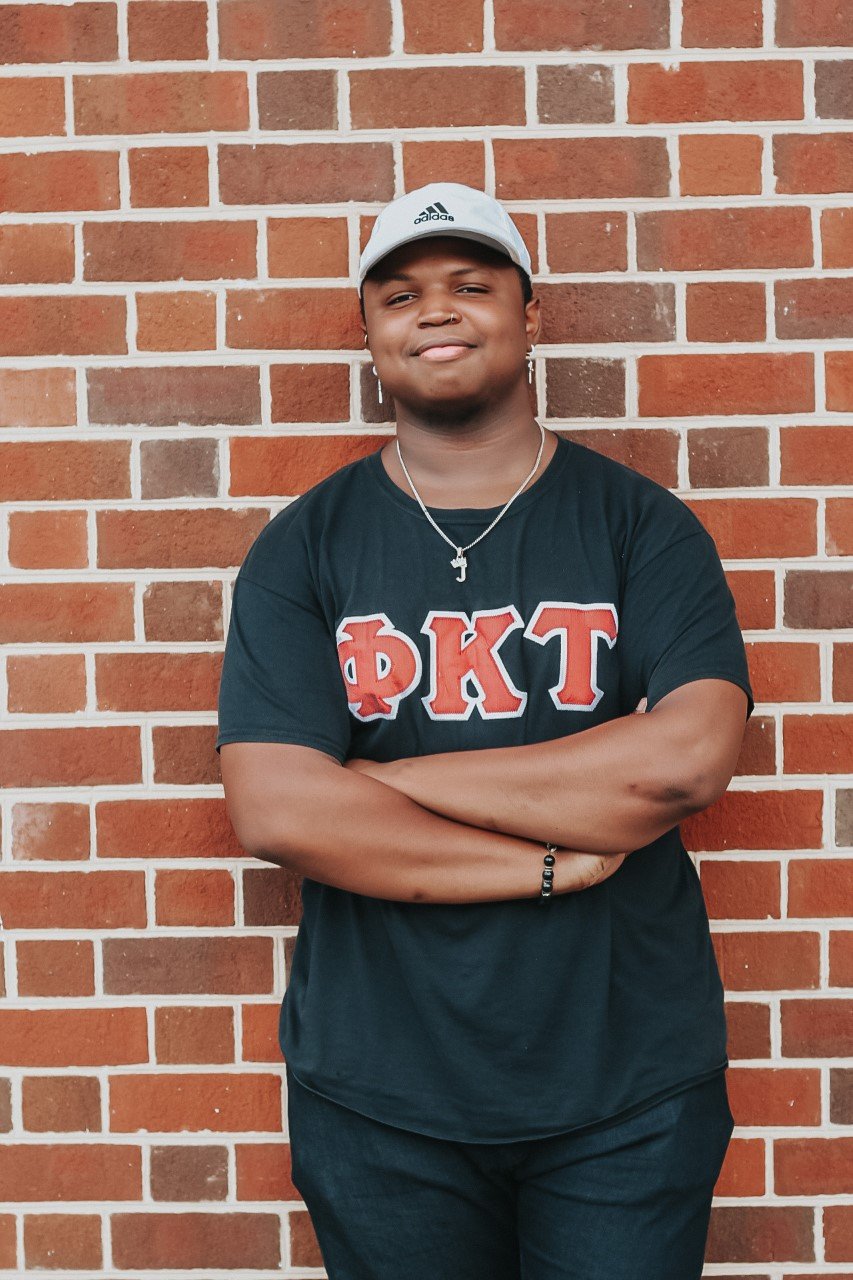Ja’Ayr Jenkins, Lynchburg ’19
I never thought that I would join a fraternity. It was simply not on my mind when arriving at the University of Lynchburg. When Greek life did become of interest to me, I had come to a crossroads on choosing what organization to join. I had the interest of joining a Divine 9 fraternity and the interest of joining Phi Kappa Tau. I, for various reasons, found my home in Phi Tau. I knew making the decision to join a “white fraternity” as an African-American would have certain challenges and obstacles I would not have faced if I decided to join the Divine 9. It wasn’t long after I said yes to Phi Kappa Tau that I started to face those foreseen challenges. Seeing my skin color as clearly different from everyone else, some brothers began making racial jokes and micro-aggressive comments that they saw as okay. Each and every time these instances arose, I would sit down with them and try my best to inform them what wasn’t okay and why it wasn’t okay. For some of the brothers this worked, because they were truly oblivious to some of their actions; for some of the brothers, they viewed it as me creating issues and being too sensitive, but they never would communicate this directly to me. Even with this, my love for the fraternity remained. I saw this organization as something special that I wanted to continue to be a part of. At times, I’ve thought of myself as foolish for staying in the fraternity. Most people in my position would have never joined in the first place. To say that I have not struggled in finding my sense of true brotherhood within Phi Tau would be a lie. The struggles have been great, because I know that some brothers see white as the default and any other race as other or different.
I want it to be known that every time you see a minority on a PWI (Predominantly White Institution), they are dealing with their own struggles and finding their community in a place where almost no one looks like them or understands them. Every time you act in a way that makes them feel different, you aid in that struggle. Every time you recruit and pick the minority for “poster child” effects, you aid to that struggle. Every time you send “rush Phi Tau” messages to every white male on campus, while not even thinking about the African-American population, you aid to that struggle. Every time you say micro-aggressive comments to your minority brothers—who you claim to love—and defend it with the excuse of “it’s just a joke” or “My other black friends let me say this,” you aid in that struggle.
My message isn’t that you should not see the color of your black brothers’ skin, because you won’t see a part of who they are. My message isn’t that you should give your black brothers special treatment or feel like you must walk on egg shells around them, because that will only aid in the problem. My message is that you should see your black and minority brothers the same as your white brothers. The white brothers that you do not see as different, because they have the default white, greek-life race. When you ask men on your campus to rush phi tau, look at who you're asking to rush and see if there is any diversity in those men at all. When you see your black brothers, I want you to listen to anything they have to say about what you may be doing wrong and what you can do right. Know that the position that puts us in is very uncomfortable at times. This is one of the primary reasons why (even after thinking it a couple times) I have never left Phi Tau. I have seen the way this fraternity has grown into true men of distinction by listening to me and my struggles as a minority brother. By paying closer attention to who we recruit. By calling out brothers who say racial or micro-aggressive comments when the minority men were not in the room. I love Phi Kappa Tau. I would not change my decision for the world. To all the white brothers currently, make sure your minority brothers truly feel the same.












